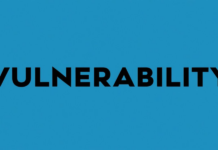
Patients in the UK are at risk of being identified through their medical data say, privacy experts.
Phil Booth who is a privacy campaigner working for MedConfidential Group claims that hospitals in the NHS network are now found selling patient data to US Pharmaceutical companies which can then use the available info to re-construct a profile of an individual.
However, NHS claims that it scientifically filters data(such as names and NHS card numbers) and then passes on the information to Pharma companies which then pass on that data to drug and tech manufactures located in India and Singapore to develop vaccines & medicines related to diseases.
Phil argues that filtering content doesn’t make the medical history anonymous as a medical record can act as a fingerprint of a patient for a whole life.
MedConfidential which a privacy advocacy group claims that some private company researchers and drug firms have so far sought after info from NHS of more than 55 million patients from birth to death and the numbers are increasing.
The populace of Britain should make a note of the fact that NHS keeps a record of patient data in a consolidated form, unlike other countries where medical data is scattered among several institutions. So, privacy experts feel that this can spell doomsday on patients taking treatment in healthcare organizations operating under NHS Network.
Several American tech giants including Google have started to bid for the medical records of 65 million people stored on the NHS Database. And according to a report published in EY, US President Donald Trump is in a plan to propose unrestricted access to NHS patient data during the post-Brexit trade agreement.
Note 1- In such an Information Security crisis, NHS has offered its patients the option of assurance that their data will never be used for research by any kind of tech and drug companies.
Note 2- The license to buy medical data from hospital networks is issued by Clinical Practice Research Datalink, which is a part of the Medicines and Healthcare Products Regulatory Agency (MHRA).






















